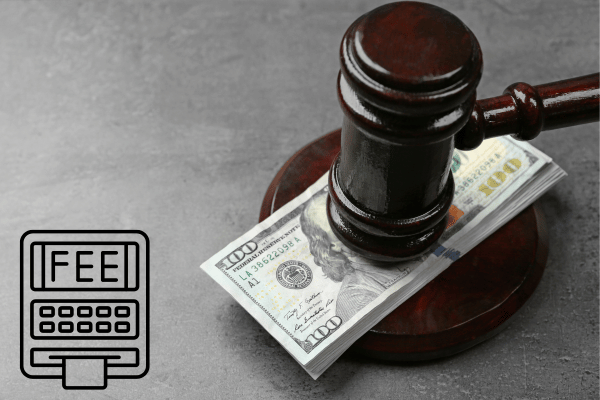Who Pays Attorney Fees in Child Custody Cases?
Child custody disputes in Michigan, like in most states, can be emotionally charged and financially taxing. One of the most common concerns that parents face during these disputes is who will bear the cost of attorney fees.
In Michigan, while the general rule is that each party is responsible for their own legal costs, there are important exceptions and considerations that can influence whether one party may be required to contribute to the other’s attorney fees. Here’s an overview of how attorney fees are handled in Michigan child custody cases.
General Rule in Michigan: Each Party Pays Their Own Attorney Fees
Under Michigan law, the default rule is that each party is expected to cover their own legal expenses in a child custody dispute. This principle is rooted in fairness, with the assumption that both parents should bear the responsibility of their individual representation.
However, the courts recognize that not all parents are in equal financial positions, and as a result, they have the discretion to depart from this general rule when necessary.
Michigan’s “Need-Based” Attorney Fees
Michigan family law courts have the authority to award attorney fees to one party based on financial need. This typically occurs when there is a significant disparity in the financial resources of the parents involved in the case. The Michigan Court Rules allow a judge to order one parent to pay the other’s attorney fees if doing so is necessary for the less financially stable parent to be able to participate in the case.
For example, if one parent has a much higher income than the other or is the primary wage earner, while the other parent has little or no income, the court may require the wealthier parent to pay a portion of the other’s attorney fees. This helps ensure that both parents can afford competent legal representation, creating a more balanced playing field during the custody battle.

Attorney Fees for Misconduct or Bad Faith
In Michigan, attorney fees can also be awarded as a sanction against one parent for bad faith conduct or misconduct during the proceedings. If the court finds that one party has unnecessarily prolonged the case, acted in bad faith, or engaged in abusive litigation tactics, it may order that parent to cover the other parent’s legal fees. This serves as a deterrent against obstructive or dishonest behavior during child custody disputes.
For example, if a parent makes baseless accusations, refuses to comply with court orders, or intentionally delays the process, the judge may award attorney fees to the other parent to compensate for the financial burden caused by the misconduct.
Attorney Fees in Custody Modifications
In Michigan, custody arrangements can be modified if there is a substantial change in circumstances or if it is in the child’s best interests. If a parent files a motion to modify custody, the court may consider attorney fees in light of the same factors as an initial custody case.
If the request for modification is legitimate and necessary, both parties may be required to pay their own attorney fees. However, if the motion is frivolous or intended to harass the other parent, the court may order the party requesting the modification to pay the other parent’s attorney fees.
Mediation and Collaborative Processes in Michigan
Michigan courts often encourage parents to attempt mediation or use collaborative law to resolve custody disputes before resorting to a full trial. In these cases, each parent is typically responsible for their own attorney fees during the mediation process. However, if the case proceeds to court because mediation fails, attorney fees may still become an issue, especially if one parent is unable to afford legal representation.
The Court’s Discretion in Michigan Child Custody Cases
Ultimately, in Michigan, the decision regarding attorney fees in child custody cases is left to the discretion of the family court judge. Michigan courts are guided by the principle that legal fees should not prevent a parent from participating in the legal process or result in an unfair outcome. Judges will take into account several factors, including:
- The financial circumstances of each parent.
- The conduct of both parties during litigation.
- Whether one parent acted in bad faith or engaged in unnecessary delays.
- Whether awarding attorney fees is necessary to ensure fairness in the case.
In Michigan, the question of who pays attorney fees in child custody cases is not always straightforward. While the general rule is that each parent is responsible for their own legal costs, Michigan courts have the authority to order one party to pay the other’s fees in certain situations. This can happen when there is a significant financial disparity between the parents, or when one parent engages in bad faith conduct.
If you are involved in a custody dispute in Michigan, it is important to consult with a family law attorney who can assess your specific situation and advise you on whether you may be entitled to an award of attorney fees or if you might be required to pay the other parent’s legal costs.
Get a Free Child Custody Consultation With An Expert Wayne & Monroe County Family Law Attorney
Recent Posts
- Navigating High-Net-Worth Divorce in Michigan: Lessons from the Obama Divorce Rumors
- What Happens If You Don’t Pay Child Support?
- What Disqualifies You From Filing Bankruptcy?
- Who Pays Child Support If Grandparents Have Custody?
- Gray Divorce In Michigan: What You Need To Know
- Can You Get A Passport If You Owe Child Support?
- Chapter 7 Bankruptcy Income Guidelines
- Does It Matter Who Files For Divorce First?
- How Long Does Spousal Support Last
- Why Is January Known As Divorce Month?
